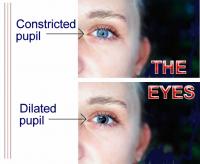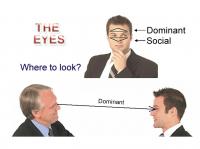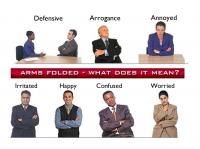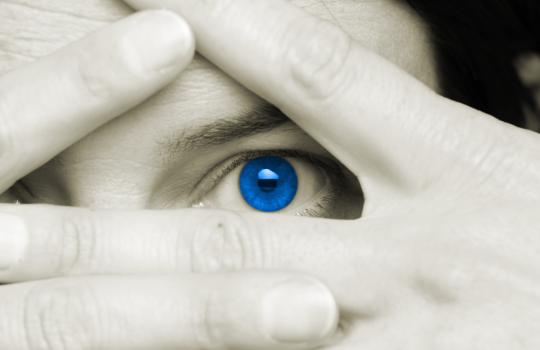In the first of a new series demystifying body language, our resident expert, Peter Clayton asks us to look into the eyes, not around the eyes...
Being skilled in reading and understanding yours and other people's body language can certainly have its professional benefits. In part one, Peter Clayon looks at body language FAQs.
Beady eyes
Beady eyes is a term that is sometimes used to describe the eyes of a person who, generally speaking, we do not trust. Their pupils are tiny or constricted. Beady eyes are often used in movies to make sure that we dislike the bad guy.
Constricted pupils are what happen when someone is being deceitful, lying, getting angry or displaying negative emotions.

Bambi eyes
Bambi eyes, my own term, is when the pupils are dilated, as in Disney films where the characters we love so much all have bright open eyes with big pupils.
This is a sign of enthusiasm, interest and acceptance – and can be the negotiator’s worst enemy for giving the game away. Given the chance, I would always set up a room for negotiation purposes in a way which allows me to make the best use of light so as to read people’s eyes. In body language terms, it is the most difficult “tell” to cover up. So if you are talking to someone and you have registered that their pupils have got distinctly smaller, constricted, then you know there is a problem and likewise if they have dilated or look much bigger then you are doing very well.
Look into my eyes
Our body language expert answers your FAQ about body language.
 Question:
Question:
I have always been told to look someone in the eyes when talking to them, but sometimes I feel uncomfortable and I am not sure whether this is right.
Answer:
Quite often when we are young, parents or guardians will say “Look me in the eye and tell me the truth.” As we grow up we believe that this is a normal everyday part of communication, but in point of fact it can be intimidating for others and sometimes it is difficult to keep concentration whilst staring into someone’s eyes.
It is better to look at the whole face, as if you were staring at something about 12 inches in front of the face, so it is looking or gazing rather than staring. In this way you are not looking directly into the eyes and maintaining concentration will be easier. As for the person you are looking at, most people would feel more comfortable.
As a side issue it is not too difficult to intimidate someone by staring them in the forehead. I do this when negotiating and when someone is trying to be unnecessarily assertive. It invariably puts them in their place and makes them feel uncomfortable, which can be quite rewarding as well a bit of fun on occasions. Give it a try.
Question:
I would like to believe in body language, but I am told if I fold my arms I am being defensive when I know I’m not. What is the truth behind folded arms?
Answer:
Folding your arms means you could just be cold. Without facial expressions to help, folded arms as a sign of body language is not much use.

If you were talking to me, and then folded your arms, moved very gently a few inches away from me, your eye contact dropped from 80/90% down to 50/60% and when you spoke you sounded much quieter than before, then I would have to draw the conclusion that there was something wrong. When several pieces of body language happen simultaneously it is called a cluster. The arms folded, the small movement away, eyes drop and voice drop all form a body language cluster to show there is something wrong.
However, you could have folded your arms, moved very slightly closer and eye contact increased to 90%+ with dilated pupils and an enthusiastic voice, then this is the opposite and would have been thought of showing increased interest.
Peter Clayton is a leading body language expert, speaker and trainer as well as a consultant for the BBC and ITV. He writes for a wide range of national papers and magazines and is a specialist consultant to other speakers, leading businesses, celebrities and politicians. For more information, visit his website: www.peterclayton.com.
 Question:
Question:  If you were talking to me, and then folded your arms, moved very gently a few inches away from me, your eye contact dropped from 80/90% down to 50/60% and when you spoke you sounded much quieter than before, then I would have to draw the conclusion that there was something wrong. When several pieces of body language happen simultaneously it is called a cluster. The arms folded, the small movement away, eyes drop and voice drop all form a body language cluster to show there is something wrong.
If you were talking to me, and then folded your arms, moved very gently a few inches away from me, your eye contact dropped from 80/90% down to 50/60% and when you spoke you sounded much quieter than before, then I would have to draw the conclusion that there was something wrong. When several pieces of body language happen simultaneously it is called a cluster. The arms folded, the small movement away, eyes drop and voice drop all form a body language cluster to show there is something wrong. 









